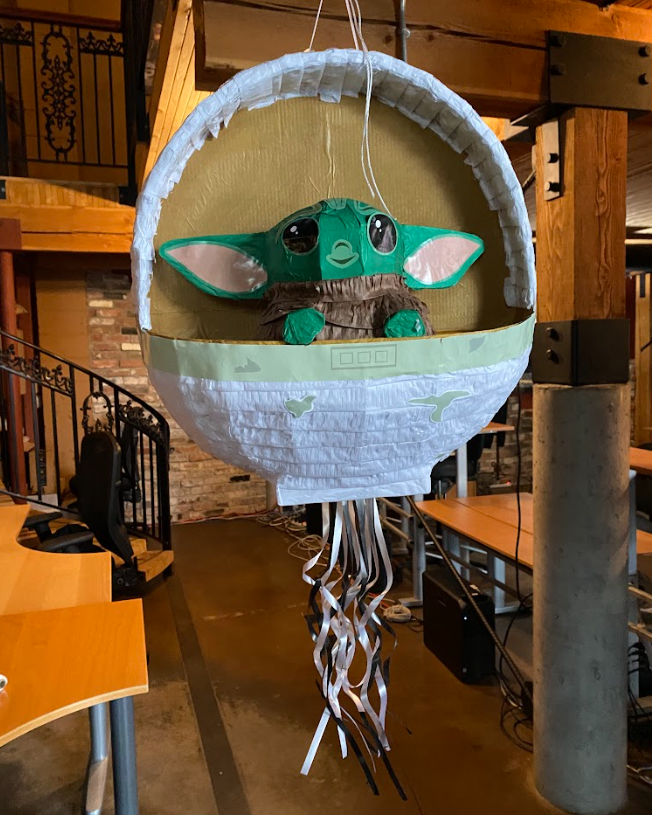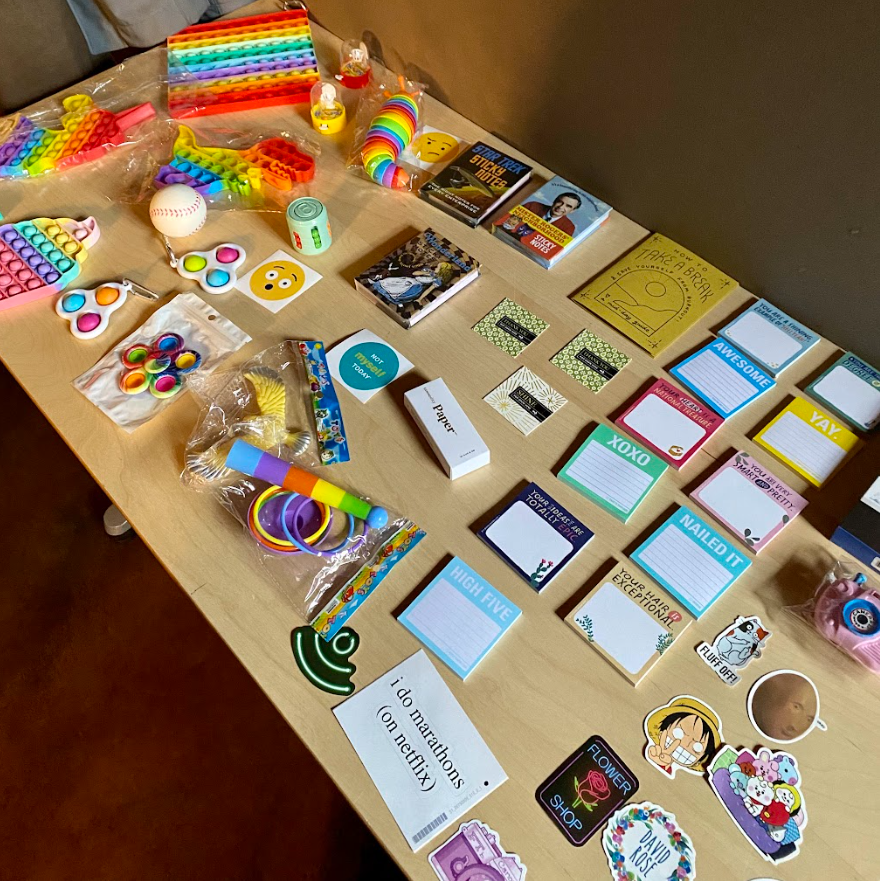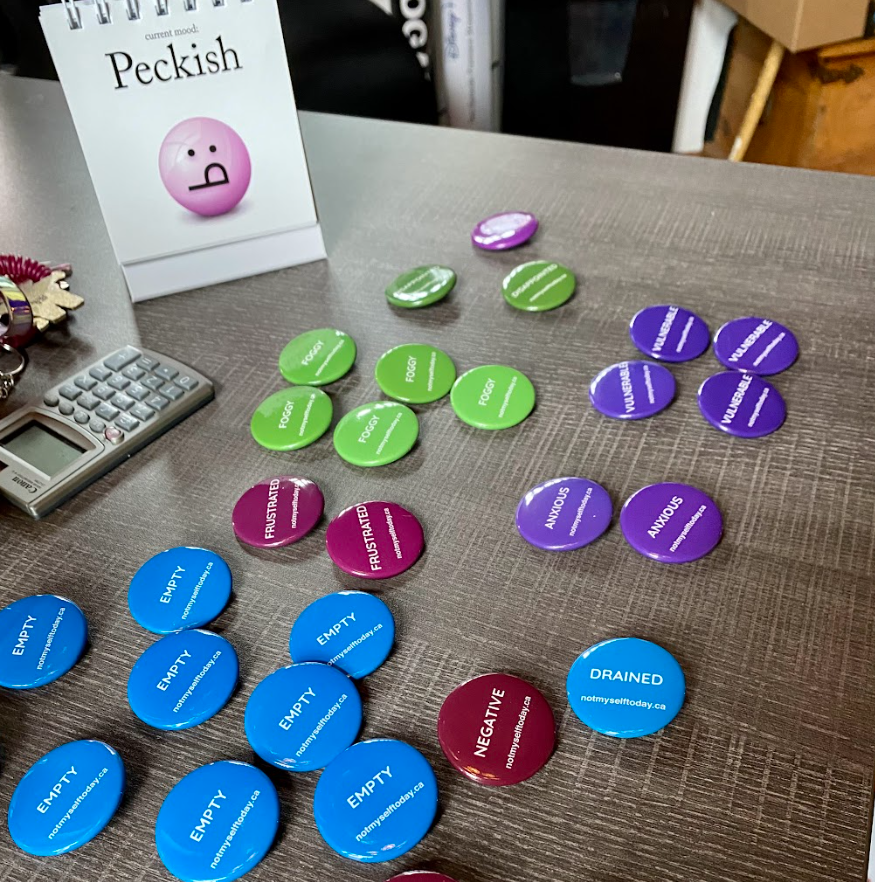Cinco De Mayo x Mental Health Week

Inside Image Engine
Image Engine celebrated Cinco De Mayo and Mental Health Week with a special lunch at our studio. We enjoyed a delicious Mexican meal together while taking time to recognize the importance of mental health. Find out why mental health is important, common myths, and how to access resources.
Image Engine celebrated Cinco De Mayo and Mental Health Week with a special lunch at our studio. We enjoyed a delicious Mexican meal together while taking time to recognize the importance of mental health.
Throughout the week, we’ve been sharing information with our teams to highlight why mental health is important, common myths, how to access resources, and more.
The theme for Mental Health Week 2023 is #MyStory, so we’ve invited our staff to share their personal stories of mental health. Stories can be a powerful tool to reduce stigma and shame, as well as reinforce feelings of strength, resilience, perseverance, and inspiration for others in a similar situation. When we tell our stories, we make sense of our lives. We can also influence and inspire change in other people.

Thank you to the team from Machete Mexican Restaurant for the delicious tacos and nachos.

While our crew were lining up for food, we set up pinatas filled with candy and toys to celebrate.

All of the tacos and nachos were assembled on the spot with fresh ingredients!

Our baby Grogu pinata was a big hit!
Why is mental health important?
Having good mental health has an abundance of benefits. It has a positive effect on your physical health, productivity, and enables you to have a higher quality of life. Not to mention that good mental health helps you to handle challenging life situations and gives you a stronger ability to cope with life stressors.
Research shows:
- By age 40, about 50% of the Canadian population will have or have had a mental illness.
- Every year, 1 in 5 people in Canada will personally experience a mental health problem or illness.

Our crew gathered in our studio for Cinco De Mayo and Mental Health Week on May 5, 2023.

A table full of fidget toys, notepads, stickers, and other fun items for employees to take.

“Not Myself Today” mood buttons to get employees talking about emotions and mental health.
What is mental health?
Mental health encompasses our emotional and psychological well-being which determines how we think, feel and behave. Good mental health allows us to enjoy life while being able to deal with its challenges. However, mental health is different from mental illness.
What is mental illness?
Mental illness refers to all diagnosable mental conditions involving changes to how we think, feel, and behave. It can happen over a short period, be episodic, or long-lasting. Mental illness also reduces the ability for someone to function effectively on a day-to-day basis.
Types of mental illness
There are more than 200 documented types of mental illnesses. Below, we have highlighted a few. For more information, visit the WHO website for types of mental disorders.
Anxiety is usually described as excessive fear and worry that results in distress and impairment in functioning. There are multiple types of anxiety disorders such as generalized anxiety disorder, panic disorder, and social anxiety disorder, just to name a few.
It is important to note the differences between stress and anxiety. Stress is usually caused by an external factor and tends to go away once the situation is resolved. However, anxiety is usually internal and tends to be a persistent feeling that interferes with how you go about living your life even if the situation is resolved.
Learn more in this NIMH Stress vs. Anxiety Fact Sheet.
Post Traumatic Stress Disorder (PSTD) is an anxiety disorder that develops over a traumatic, or distressing event. Some symptoms include nightmares or flashbacks and can cause feelings of isolation, irritability and detachment. These symptoms usually are severe enough that it affects the individual’s ability to function normally on a day-to-day basis.
Watch this video to learn more: What is PSTD? (1:44 mins).
Depression is a common mood disorder that is characterized by persistent sadness and a lack of interest in the activities you once found enjoyable.
A study done by the World Health Organization (WHO) found that 280 million people were living with depression in 2019. Some symptoms of depression include poor concentration, excessive guilt, hopelessness, and low energy.
Bipolar disorder is another known example of a mood disorder that affects around 40 million people worldwide.
Individuals who struggle with bipolar disorder tend to experience depressive episodes with manic symptoms. Some of these symptoms are irritability, increased energy, racing thoughts and impulsive behaviour.
Mental health myths
Mental illnesses affect everyone in some way. We all likely know someone who has experienced a mental illness at some point. Yet there are still many hurtful attitudes around mental illnesses that fuel stigma and discrimination and make it harder to reach out for help.
Here are some common mental health myths from the CMHA website:
- Mental illnesses aren’t real illnesses
- Mental illnesses are an excuse for poor behaviour
- People who have been affected by mental illnesses are weak and can’t handle stress
- People who experience mental illness can’t work
Take care of your mental health
At Image Engine, we take mental health and well-being seriously. To get the support you need, we highly encourage our staff to use these resources:
- Our Employee and Family Assistance Program (EFAP) is included with your benefits coverage.
- Not myself today is a unique workplace mental health initiative that is focused on building greater awareness and understanding of mental health, reducing stigma, and fostering a safe and supportive workplace.
- Bounce Back is a free skill-building program designed to help adults and youth 13+ manage low mood, mild to moderate depression, anxiety, stress or worry. Delivered online or over the phone with a coach, you will get access to tools that will support you on your path to mental wellness.
- Reach out to one of our 15 certified mental health first aid attendants on staff at Image Engine. They are trained to be informed, compassionate listeners who can provide preliminary care to employees who are struggling with their mental well-being, with the goal of helping them access services and resources to aid in their recovery.
- Access counselling coverage through Image Engine’s Manulife health benefits and Health Care Savings Account.
- Mental Health and Substance Use Resources – HealthLinkBC Resources
- Wellness Together Canada Resources
- Tips for Talking with Your Healthcare Provider – NIMH Article
Resources
To learn more about mental health, feel free to check out the following resources:
- General Info on Mental Illnesses – CMHA Article
- What is Mental Health? – Mental Health at Work Video (3:39 mins)
- Understanding Mental Health – Manulife Video (1:35 mins)
Mental health resources
- 8 Areas to Practice Self-Care – Article
- Mental Health Support – CMHA Brochures
- Check In On Your Mental Health – CMHA Assessments
- Online Mental Health Courses – CMHA Courses
- 5-Minute Meditation to Calm the Mind – Video (5 mins)
- 10-Minute Meditation for Self-Love – Video (10 mins)
- Box Breathing Technique – Video (2:47 mins)

